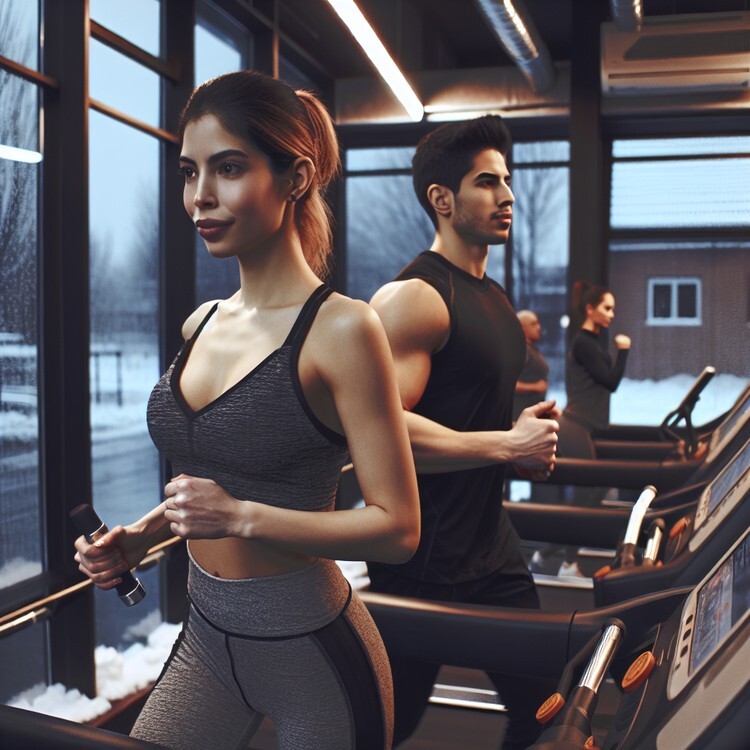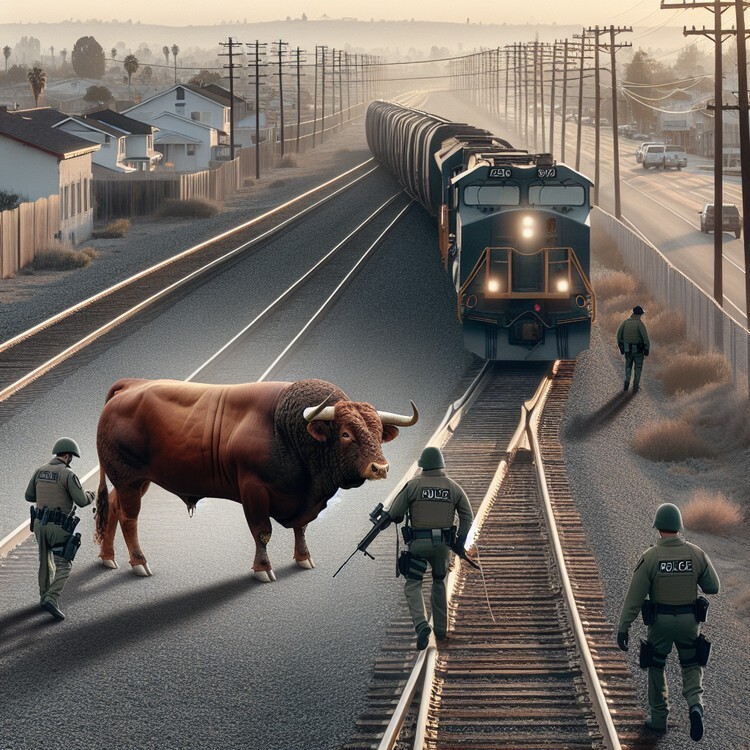Lots of people wait until January to start getting fit because it feels like a fresh start. The most popular new year’s resolution is to improve physical health, like losing weight or eating better. But studies show that many people give up on their resolutions after just a month, and most have given up after six months.
Starting in December might be better because we naturally slow down during the winter months. It’s a good time to go against the tendency to be less active and start exercising. By starting earlier, we can get into a routine and develop healthy habits before the new year.
Gyms are usually really busy in January because of new year’s resolutions. This can be intimidating for beginners or people who aren’t used to working out. But during the Christmas period, gyms are usually quieter, so it’s a more comfortable environment for beginners to learn and gain confidence. It’s also a good time to take advantage of gym inductions, online resources, and classes to structure workouts and get guidance from instructors.
It’s important to have a realistic mindset when it comes to fitness goals. Don’t put too much pressure on yourself to make big changes quickly. Set smaller, achievable goals and focus on progress rather than being perfect. Bringing a friend to workouts can also help increase confidence and provide support.
In conclusion, waiting until January to start getting fit is common, but it might not be the best approach. Starting in December allows for a gradual transition and the chance to develop healthy habits before the new year. It also provides a less crowded and more comfortable environment for beginners. By setting realistic goals and seeking support, you can increase your chances of long-term success in your fitness journey.
Original news source: Why do people always wait until January to get fit? (BBC)
🎧 Listen:
Slow
Normal
Fast
📖 Vocabulary:
| 1 | resolution | A promise to yourself to do or not do something |
| 2 | intimidating | Making someone feel nervous or scared |
| 3 | inductions | Introductions or orientations to help you get started |
| 4 | realistic | Sensible and likely to be true or successful |
| 5 | mindset | The way you think about something |
| 6 | achievable | Possible to do or accomplish |
| 7 | progress | Moving forward or advancing in some way |
| 8 | confidence | Belief in your own abilities or strength |
| 9 | transition | Change from one state or condition to another |
| 10 | gradual | Happening slowly over time |
| 11 | environment | The surroundings or conditions in which a person, animal, or plant lives or operates |
| 12 | pressure | The force or weight that is put on someone or something |
| 13 | guidance | Help or advice that shows you how to do something |
| 14 | support | Assistance or backing from someone else |
| 15 | journey | A long trip or experience from one place to another |
Group or Classroom Activities
Warm-up Activities:
– News Summary
Instructions: Divide the class into pairs or small groups. Give each group a copy of the article. Instruct them to read the article and summarize the main points in their own words. After a few minutes, have each group share their summary with the class.
– Opinion Poll
Instructions: Write three statements related to the article on the board. For example, “Do you think starting in December is a better time to get fit?” or “Have you ever given up on a new year’s fitness resolution?” Divide the class into pairs or small groups and have them discuss their opinions on each statement. After a few minutes, have a class discussion and ask for volunteers to share their opinions.
– Vocabulary Pictionary
Instructions: Write a list of vocabulary words from the article on the board. Divide the class into pairs or small groups and give each group a set of vocabulary words. Instruct them to take turns drawing and guessing the words. They can use only pictures and gestures, no words. The group that guesses the most words correctly wins.
– Pros and Cons
Instructions: Divide the class into pairs or small groups. Instruct each group to make a list of the pros and cons of starting a fitness journey in December versus January. After a few minutes, have each group share their lists with the class. Encourage a class discussion and ask students to share their opinions and experiences.
– Future Predictions
Instructions: In pairs or small groups, have students discuss and make predictions about what they think will happen to their fitness journey if they start in December versus January. For example, “Do you think starting in December will make it easier to develop healthy habits?” or “Will starting in January make it harder to stay motivated?” After a few minutes, have a class discussion and ask for volunteers to share their predictions and reasoning.
🤔 Comprehension Questions:
1. Why do many people wait until January to start getting fit?
2. What is the most popular new year’s resolution?
3. According to studies, how long do most people stick to their resolutions?
4. Why might it be better to start getting fit in December?
5. Why are gyms usually busy in January?
6. How can the Christmas period be a more comfortable environment for beginners at the gym?
7. What is the importance of having a realistic mindset when it comes to fitness goals?
8. Why is it beneficial to bring a friend to workouts?
Go to answers ⇩
🎧✍️ Listen and Fill in the Gaps:
Lots of (1)______ wait until January to start (2)______ fit because it feels like a fresh start. The most (3)______ new year’s resolution is to improve physical health, like (4)______ weight or eating better. But studies show that many people give up on their resolutions after just a month, and most have given up after six months.
Starting in December might be better because we naturally slow down during the winter months. It’s a good time to go against the tendency to be less active and start exercising. By (5)______ earlier, we can get into a routine and (6)______ healthy habits before the new year.
Gyms are usually really busy in January because of new year’s resolutions. This can be intimidating for beginners or people who aren’t used to working out. But during the (7)______ period, gyms are usually quieter, so it’s a more comfortable (8)______ for beginners to learn and gain confidence. It’s also a good time to take advantage of gym inductions, online (9)______, and classes to structure workouts and get guidance from instructors.
It’s (10)______ to have a realistic mindset when it (11)______ to fitness goals. Don’t put too much pressure on yourself to make big (12)______ quickly. Set smaller, achievable goals and focus on progress rather than being perfect. Bringing a friend to workouts can also help increase confidence and provide (13)______.
In conclusion, (14)______ until January to start getting fit is common, but it might not be the best approach. Starting in December (15)______ for a gradual transition and the chance to develop healthy habits before the new year. It also provides a less crowded and more comfortable environment for beginners. By setting (16)______ goals and seeking support, you can increase your chances of long-term success in your fitness journey.
Go to answers ⇩
💬 Discussion Questions:
Students can ask a partner these questions, or discuss them as a group.
1. What is a new year’s resolution and why do people make them?
2. How would you feel if you went to a gym in January and it was really crowded?
3. Do you think it’s better to start getting fit in December or wait until January? Why or why not?
4. What are some advantages of starting to exercise in December instead of January?
5. How do you think having a friend with you during workouts can help?
6. Do you think it’s important to set big fitness goals or smaller, achievable goals? Why?
7. How do you feel about the idea of focusing on progress rather than being perfect in your fitness journey?
8. Have you ever made a new year’s resolution? If so, did you stick to it? If not, why not?
9. What are some ways you can develop healthy habits before the new year?
10. How do you think a less crowded gym environment can benefit beginners?
11. Do you like going to the gym? Why or why not?
12. What are some online resources you can use to help with your workouts?
13. How do you think having a gym induction can help beginners?
14. What are some ways you can seek support in your fitness journey?
15. Do you think starting to exercise in December can increase your chances of long-term success? Why or why not?
Individual Activities
📖💭 Vocabulary Meanings:
Match each word to its meaning.
Words:
1. resolution
2. intimidating
3. inductions
4. realistic
5. mindset
6. achievable
7. progress
8. confidence
9. transition
10. gradual
11. environment
12. pressure
13. guidance
14. support
15. journey
Meanings:
(A) Belief in your own abilities or strength
(B) A long trip or experience from one place to another
(C) The way you think about something
(D) Moving forward or advancing in some way
(E) Happening slowly over time
(F) A promise to yourself to do or not do something
(G) Making someone feel nervous or scared
(H) Sensible and likely to be true or successful
(I) The force or weight that is put on someone or something
(J) The surroundings or conditions in which a person, animal, or plant lives or operates
(K) Assistance or backing from someone else
(L) Introductions or orientations to help you get started
(M) Change from one state or condition to another
(N) Possible to do or accomplish
(O) Help or advice that shows you how to do something
Go to answers ⇩
🔡 Multiple Choice Questions:
1. When do most people typically start focusing on their physical health?
(a) February
(b) March
(c) January
(d) December
2. What is the most popular new year’s resolution?
(a) Traveling more
(b) Learning a new language
(c) Improving physical health
(d) Saving money
3. How long do studies show that most people stick to their new year’s resolutions?
(a) Six months
(b) One year
(c) Two years
(d) One month
4. Why might it be better to start getting fit in December?
(a) Gyms are less crowded in December
(b) People naturally slow down during the winter months
(c) It’s easier to find gym inductions and classes in December
(d) All of the above
5. Why might gyms be less intimidating for beginners during the Christmas period?
(a) Beginners can take advantage of gym inductions and classes
(b) Gyms are usually quieter in December
(c) Beginners can get guidance from instructors
(d) All of the above
6. What is important to keep in mind when setting fitness goals?
(a) Focusing on progress rather than being perfect
(b) Bringing a friend for support
(c) All of the above
(d) Setting smaller, achievable goals
7. What can help increase confidence and provide support in a fitness journey?
(a) Bringing a friend to workouts
(b) Setting big changes quickly
(c) Putting pressure on yourself
(d) None of the above
8. What is the main advantage of starting to get fit in December?
(a) Gradual transition and development of healthy habits
(b) Crowded and uncomfortable environment for beginners
(c) Setting unrealistic goals for quick changes
(d) None of the above
Go to answers ⇩
🕵️ True or False Questions:
1. Setting larger, unattainable goals and focusing on perfection is important for long-term success in your fitness journey.
2. Many people wait until January to start getting fit because it feels like a fresh start.
3. Gyms are usually really quiet in January because of new year’s resolutions.
4. Starting in January might be better because we naturally slow down during the winter months.
5. During the Christmas period, gyms are usually quieter, so it’s a more comfortable environment for beginners to learn and gain confidence.
6. The most popular new year’s resolution is to improve physical health, like losing weight or eating better.
7. Most people have given up on their resolutions after six months.
8. Studies show that many people stick to their resolutions after just a month.
Go to answers ⇩
📝 Write a Summary:
Write a summary of this news article in two sentences.
Check your writing now with the best free AI for English writing!
Writing Questions:
Answer the following questions. Write as much as you can for each answer.
Check your answers with our free English writing assistant!
1. Why do many people wait until January to start improving their physical health?
2. What happens to most people’s new year’s resolutions after just a month?
3. Why does the article suggest starting in December instead of January?
4. Why is the Christmas period a good time for beginners to start going to the gym?
5. What advice does the article give for setting fitness goals and increasing chances of success?
✅ Answers
🤔✅ Comprehension Question Answers:
1. Why do many people wait until January to start getting fit?
Many people wait until January to start getting fit because it feels like a fresh start and a new year’s resolution is a common tradition.
2. What is the most popular new year’s resolution?
The most popular new year’s resolution is to improve physical health, like losing weight or eating better.
3. According to studies, how long do most people stick to their resolutions?
According to studies, many people give up on their resolutions after just a month, and most have given up after six months.
4. Why might it be better to start getting fit in December?
It might be better to start getting fit in December because we naturally slow down during the winter months, so it’s a good time to go against the tendency to be less active and start exercising. By starting earlier, we can get into a routine and develop healthy habits before the new year.
5. Why are gyms usually busy in January?
Gyms are usually busy in January because many people make new year’s resolutions to improve their physical health, so they join gyms to start working out.
6. How can the Christmas period be a more comfortable environment for beginners at the gym?
During the Christmas period, gyms are usually quieter, so it’s a more comfortable environment for beginners to learn and gain confidence. It’s also a good time to take advantage of gym inductions, online resources, and classes to structure workouts and get guidance from instructors.
7. What is the importance of having a realistic mindset when it comes to fitness goals?
Having a realistic mindset is important when it comes to fitness goals because it’s not realistic to expect big changes quickly. Setting smaller, achievable goals and focusing on progress rather than being perfect can help maintain motivation and prevent disappointment.
8. Why is it beneficial to bring a friend to workouts?
Bringing a friend to workouts can be beneficial because it increases confidence and provides support. Having a workout buddy can make exercising more enjoyable and help you stay motivated.
Go back to questions ⇧
🎧✍️✅ Listen and Fill in the Gaps Answers:
(1) people
(2) getting
(3) popular
(4) losing
(5) starting
(6) develop
(7) Christmas
(8) environment
(9) resources
(10) important
(11) comes
(12) changes
(13) support
(14) waiting
(15) allows
(16) realistic
Go back to questions ⇧
📖💭✅ Vocabulary Meanings Answers:
1. resolution
Answer: (F) A promise to yourself to do or not do something
2. intimidating
Answer: (G) Making someone feel nervous or scared
3. inductions
Answer: (L) Introductions or orientations to help you get started
4. realistic
Answer: (H) Sensible and likely to be true or successful
5. mindset
Answer: (C) The way you think about something
6. achievable
Answer: (N) Possible to do or accomplish
7. progress
Answer: (D) Moving forward or advancing in some way
8. confidence
Answer: (A) Belief in your own abilities or strength
9. transition
Answer: (M) Change from one state or condition to another
10. gradual
Answer: (E) Happening slowly over time
11. environment
Answer: (J) The surroundings or conditions in which a person, animal, or plant lives or operates
12. pressure
Answer: (I) The force or weight that is put on someone or something
13. guidance
Answer: (O) Help or advice that shows you how to do something
14. support
Answer: (K) Assistance or backing from someone else
15. journey
Answer: (B) A long trip or experience from one place to another
Go back to questions ⇧
🔡✅ Multiple Choice Answers:
1. When do most people typically start focusing on their physical health?
Answer: (c) January
2. What is the most popular new year’s resolution?
Answer: (c) Improving physical health
3. How long do studies show that most people stick to their new year’s resolutions?
Answer: (d) One month
4. Why might it be better to start getting fit in December?
Answer: (b) People naturally slow down during the winter months
5. Why might gyms be less intimidating for beginners during the Christmas period?
Answer: (b) Gyms are usually quieter in December
6. What is important to keep in mind when setting fitness goals?
Answer: (d) Setting smaller, achievable goals
7. What can help increase confidence and provide support in a fitness journey?
Answer: (a) Bringing a friend to workouts
8. What is the main advantage of starting to get fit in December?
Answer: (a) Gradual transition and development of healthy habits
Go back to questions ⇧
🕵️✅ True or False Answers:
1. Setting larger, unattainable goals and focusing on perfection is important for long-term success in your fitness journey. (Answer: False)
2. Many people wait until January to start getting fit because it feels like a fresh start. (Answer: True)
3. Gyms are usually really quiet in January because of new year’s resolutions. (Answer: False)
4. Starting in January might be better because we naturally slow down during the winter months. (Answer: False)
5. During the Christmas period, gyms are usually quieter, so it’s a more comfortable environment for beginners to learn and gain confidence. (Answer: True)
6. The most popular new year’s resolution is to improve physical health, like losing weight or eating better. (Answer: True)
7. Most people have given up on their resolutions after six months. (Answer: True)
8. Studies show that many people stick to their resolutions after just a month. (Answer: False)
Go back to questions ⇧















